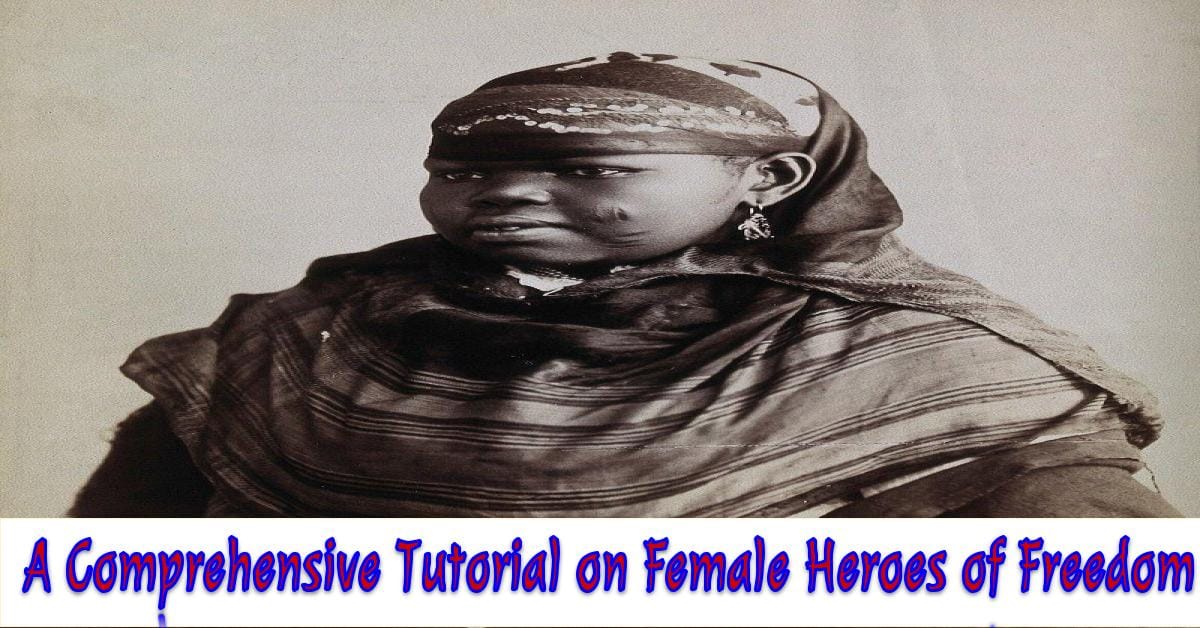👩💼 Women in Kenya’s Independence Struggle
A Comprehensive Tutorial on Female Heroes of Freedom
🌟 Introduction
Women played pivotal roles in Kenya’s struggle for independence, contributing in ways that were often overlooked by traditional historical narratives. This tutorial explores their multifaceted contributions, from direct combat to intelligence networks and community organization.
👑 Key Female Leaders
⚔️
Mekatilili wa Mensa
Giriama Leader
Mobilized kaya elders and administered oaths to cause the Agiriama resistance
🔮
Moraa
Kitutu Prophetess
Instrumental leader in the Gusii resistance movement
🗣️
Mary Muthoni Nyanjiru
Activist
Famous for inciting men to riot when Harry Thuku was arrested in Nairobi (March 1922)
💃
Syotune wa Kithuke
Kamba Prophetess
Used the kilumi dance in 1911 to mobilize the Akamba against British colonialism
🎯 Roles in the Independence Struggle
🕵️♀️ Intelligence & Espionage
- Acted as spies for Mau Mau fighters in urban centers
- Supplied information to forest forces
- Organized intelligence networks
🏫 Education & Religion
- Established independent churches and schools
- Co-founded Legio Maria (Aoko in western Kenya)
- Educated children for future leadership
🍽️ Support Services
- Provided food to fighters in the forests
- Looked after families while men fought
- Hid fighters in their houses
🎵 Cultural Resistance
- Composed songs ridiculing colonial chiefs (e.g., Muthirigu)
- Created the Kanyegenuri song commemorating Mary Nyanjiru
- Used cultural expressions to inspire resistance
📊 Women’s Contributions Overview
⚔️
Direct Combat
Field Marshal Muthoni and others fought alongside male warriors
🔗
Supply Networks
Thousands organized supply lines for food, weapons, and intelligence
👥
Organization
Formed groups like Mumbi Central Association and participated in oathing ceremonies
🌿 Specific Roles in the Mau Mau Movement
⚔️ Combat & Military Roles
- Fully-fledged warriors fighting alongside men
- Field Marshal ranks (Muthoni Ngatha)
- Minor military duties like cleaning guns
- Wagiri Njoroge crowned as Queen of Mau Mau (June 1953)
🕵️♀️ Intelligence Operations
- Primary responsibility for supply line organization
- Go-betweens and carriers of food and firearms
- Flirting with enemies to gather information
- Strategic killings to obtain weapons
⚖️ Administrative & Judicial Roles
- Officiated at oathing ceremonies
- Judges in Nakuru’s Mau Mau Courts
- Co-opted in duo-sex political councils
- Some acted as executioners
🏠 Support & Community Services
- Maintained family units during warfare
- International support seeking (Mama Sarah Sarai)
- Property donations (cars, meeting places)
- Recruitment of new fighters
- Children’s services as informers
⭐ Notable Examples & Achievements
🏛️ Political Participation
Priscilla Abwao (1960)
Participated in the Lancaster House Conference in London to prepare the independence constitution
🎭 Cultural Impact
Kanyegenuri Song
Composed to commemorate Mary Nyanjiru’s bravery, later became the Mau Mau anthem of resistance
🏢 Organization Building
Mumbi Central Association (1930s)
Formed by Agikuyu women who felt KCA was not recognizing their contribution
🌍 International Outreach
Education Networks
Collected money and smuggled brightest children overseas to study through Sudan, Ethiopia, and Egypt
⚠️ Challenges Women Faced in the Forests
🌧️
Harsh Conditions
Many couldn’t withstand torrential rains, bitter cold, and constantly fell sick
🛡️
Defense Limitations
Many couldn’t defend themselves against enemies and became a burden to men
🍽️
Resource Strain
Extra mouths to feed with limited useful contributions in return
⚡
Social Tensions
Competition among male guerrillas for sexual favors caused conflicts
💡 Key Learning Points
🎯 Multifaceted Contributions
Women’s roles extended far beyond traditional expectations, encompassing combat, intelligence, administration, cultural resistance, and international diplomacy.
🌐 Strategic Importance
Women’s involvement was crucial to the success of the independence movement, providing essential support networks and maintaining community cohesion.
🏆 Recognition Challenges
Despite their significant contributions, women often faced recognition challenges, leading to the formation of their own organizations to ensure their voices were heard.
🌟 Remember Our Heroes
The courage and sacrifice of these women laid the foundation for Kenya’s independence. Their legacy continues to inspire generations of leaders.
Unlock Self-Testing Questions and Answers
